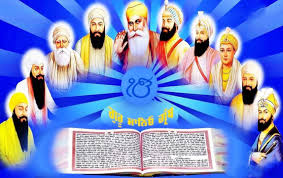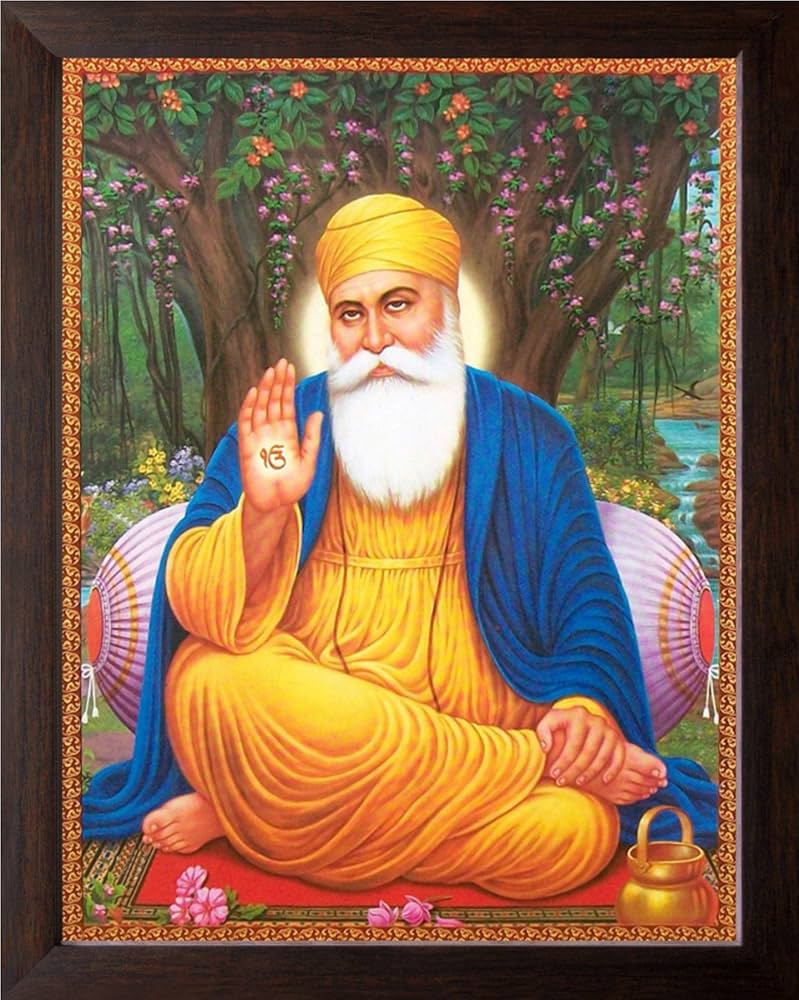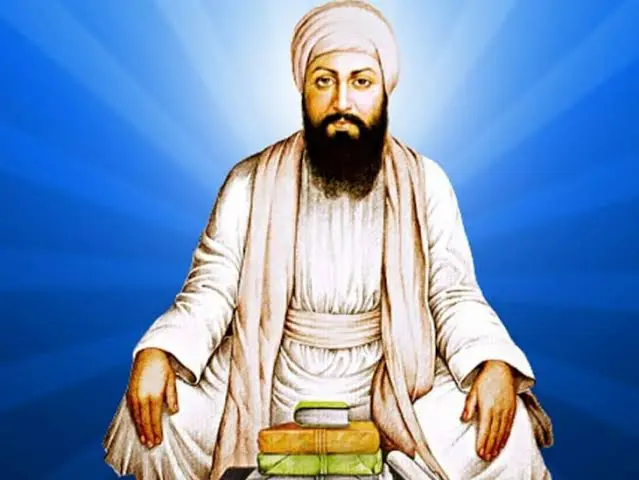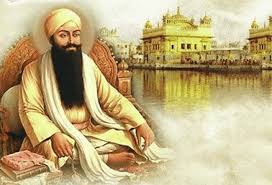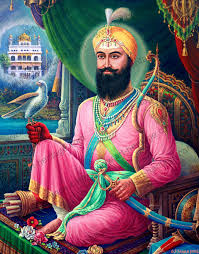Introduction:
The Sikh Gurus hold a sacred place in the hearts of millions, revered for their profound wisdom, selfless service, and unwavering devotion to the principles of equality, justice, and compassion. As we delve into the history and teachings of these spiritual luminaries, let us embark on a journey that celebrates their divine guidance and illuminates our understanding of Sikhism.
Guru Nanak Dev Ji
Guru Nanak Dev Ji, the founder of Sikhism, was born in 1469 in Punjab, India. His message emphasized the oneness of humanity, irrespective of caste, creed, or gender. Guru Nanak Dev Ji’s teachings stressed the importance of honest living, meditation, and selfless service (seva). His composition, the Guru Granth Sahib, is a sacred scripture that serves as the eternal Guru for Sikhs.
Guru Angad Dev Ji
Guru Angad Dev Ji, the second Sikh Guru, carried forward Guru Nanak Dev Ji’s mission and focused on promoting education and spreading the Gurmukhi script. Under his guidance, Sikhism began to take shape as a distinct faith, with emphasis on moral values, physical well-being, and the importance of a disciplined life.
Guru Amar Das Ji

Guru Amar Das JI
Guru Amar Das Ji, the third Sikh Guru, played a pivotal role in institutionalizing the Sikh community. He established the concept of “langar,” a free community kitchen, to promote equality and eliminate caste-based discrimination. Guru Amar Das Ji emphasized the importance of gender equality, encouraging women to participate actively in religious affairs.
Guru Ram Das Ji
Guru Ram Das Ji, the fourth Sikh Guru, is renowned for founding the city of Amritsar and establishing the Harmandir Sahib, popularly known as the Golden Temple. He advocated humility, service to others, and the pursuit of spiritual growth. Guru Ram Das Ji introduced the Anand Karaj ceremony, the Sikh wedding ceremony, emphasizing the equality of man and woman in marriage.
Guru Arjan Dev Ji
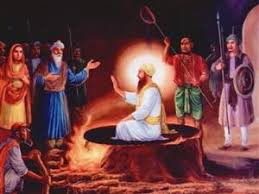
Guru Arjun Dev Ji
Guru Arjan Dev Ji, the fifth Sikh Guru, compiled and edited the Guru Granth Sahib. He endured severe persecution under the Mughal rulers but remained steadfast in his commitment to Sikh principles. Guru Arjan Dev Ji’s martyrdom stands as a testament to his unwavering faith and refusal to compromise on the values of truth and justice.
Guru Har Gobind Ji
Guru Har Gobind Ji, the sixth Sikh Guru, introduced the concept of the “miri-piri,” signifying the harmonious balance between spiritual and temporal power. He advocated the defense of justice and fought against oppression. Guru Har Gobind Ji transformed Sikhism into a sovereign community, promoting self-defense and the protection of human rights.
Guru Har Rai Ji
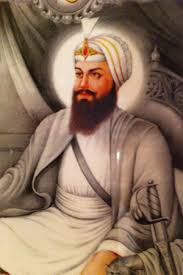
Guru Hari Rai Ji
Guru Har Rai Ji was the seventh Sikh Guru who succeeded his grandfather, Guru Har Gobind. He was known for his gentle and compassionate nature, and under his leadership, the Sikh community flourished both spiritually and socially. Guru Har Rai was a patron of the arts and sciences, and he encouraged Sikhs to live a disciplined and righteous life. He also emphasized the importance of serving humanity and promoting peace. Guru Har Rai’s tenure as Guru was marked by his efforts to build bridges with different religious communities, promoting religious tolerance and understanding.
Guru Harkrishan
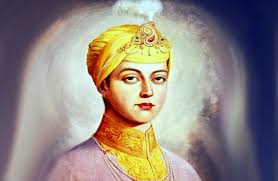
Guru Harkrishan Ji
Guru Harkrishan, the eighth Sikh Guru, became Guru at a very young age, after the passing of his father, Guru Har Rai. Despite his tender age, Guru Harkrishan exhibited remarkable wisdom and compassion. He is best known for his selfless service during the smallpox epidemic in Delhi. Guru Harkrishan reached out to the suffering and treated them with care and love, earning him the title of “Bala Pritam,” meaning “Child Beloved of God.” His short but impactful life left a lasting impression on the Sikh community, emphasizing the importance of empathy, selflessness, and devotion.
Guru Tegh Bahadur Ji
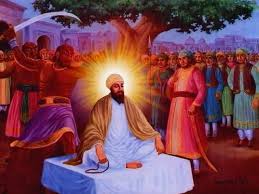
Guru Teg Bahadur Ji
Guru Tegh Bahadur Ji, the ninth Sikh Guru, sacrificed his life to protect the freedom of religion and fight against tyranny. He stood up against the forced conversions imposed by the Mughal Emperor Aurangzeb and demonstrated the importance of upholding one’s beliefs and defending the rights of others.
Guru Gobind Singh
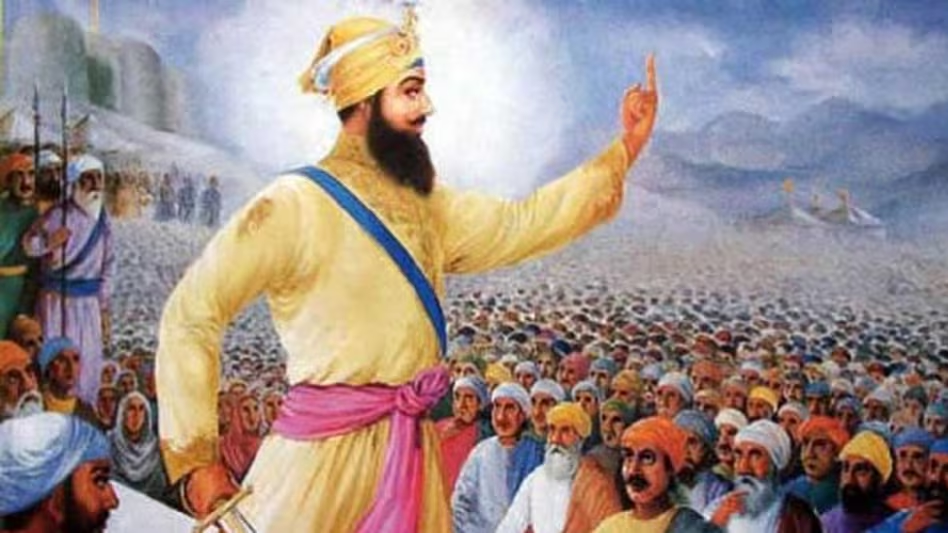
Guru Gobind Singh Ji
Guru Gobind Singh, the tenth and last Sikh Guru, played a pivotal role in shaping Sikhism and its identity. He established the Khalsa, a community of committed Sikhs, and infused them with the spirit of courage and sacrifice. Guru Gobind Singh’s teachings emphasized the pursuit of justice, equality, and the defense of righteousness. He also initiated the tradition of the Five Ks, which include uncut hair (kesh), a comb (kangha), a steel bracelet (kara), cotton undergarments (kachera), and a ceremonial sword (kirpan), symbolizing discipline, identity, and commitment to the faith. Guru Gobind Singh’s contributions continue to inspire Sikhs around the world, as he exemplified fearlessness, righteousness, and unwavering faith.
Conclusion:
The Sikh Gurus provided spiritual guidance and inspired millions with their teachings, leading humanity towards a path of righteousness, tolerance, and social justice. Their legacy continues to guide Sikhs and non-Sikhs alike, reminding us of the importance of living a life of integrity, serving humanity, and embracing the principles of equality and compassion.

